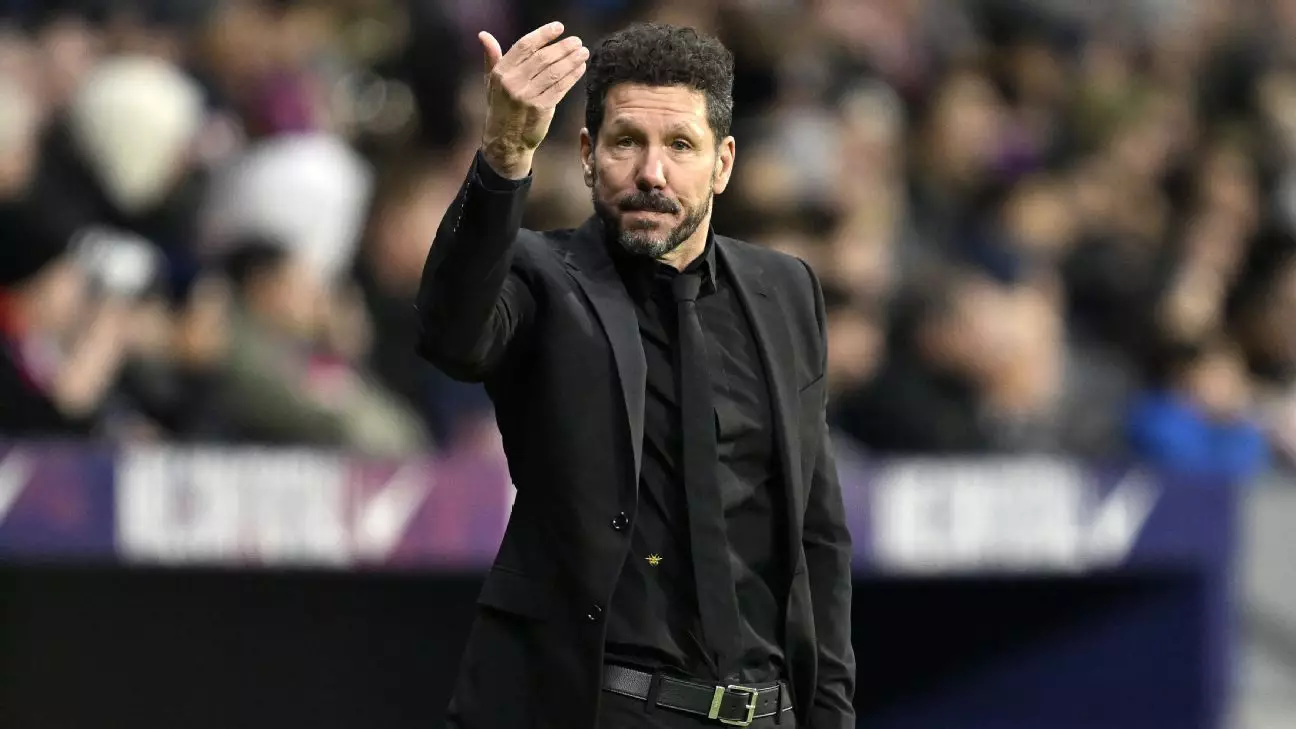In the high-stakes atmosphere of La Liga, rivalries often transcend the pitch, spilling over into controversial comments and heated exchanges. The latest chapter in the ongoing feud between Atlético Madrid’s coach, Diego Simeone, and his Real Madrid counterpart, Carlo Ancelotti, exemplifies this dynamic. Following Ancelotti’s team’s emphatic 5-2 Copa del Rey victory over Celta Vigo, a sense of competitive tension was reignited when Simeone suggested that Real Madrid has long benefited from dubious refereeing decisions, hinting at an established bias favoring the giants.
Simeone’s assertion about the influence of refereeing decisions opens a broader conversation regarding the perceived inequality within Spanish football. Historical narratives are often drawn upon in the context of referee favoritism, where accusations and counter-accusations are recurrent themes. The suggestion that Real Madrid has enjoyed an advantage in officiating for over a century resonates with both Atlético fans and opponents alike, who feel marginalized in what is considered a ‘two-horse race’ in La Liga.
Ancelotti’s retort, stating that “there are some ‘thorns’ that might hurt,” underscores a defensive posture from Los Blancos. His response implies a level of dismissiveness towards Simeone’s claims, further deepening a rift that isn’t merely tactical, but deeply personal. Ceballos’s remarks about Simeone’s past failures in key matches against Real highlight the weight of historical grievances, suggesting that the Atlético coach is still haunted by past defeats and perhaps clouding his judgment of present-day rivalries.
Simeone subsequently fired back, emphasizing the inconsistency in how Ancelotti and Ceballos view incidents when they were associated with different clubs. His insistence on the importance of memory introduces an interesting facet to the discussion—the idea that coaches may revise their narratives based on their current affiliations. Who a coach is, and where they currently find themselves in the football hierarchy, can dramatically color their perspectives.
Moreover, Simeone’s reference to Ancelotti’s comments in the 2017 Champions League quarterfinal speaks to a strategic game of psychological warfare. By dredging up past statements, he aims to recast the narrative around officiating standards and fairness in the competition, suggesting that such biases are not merely anecdotal but a recurring pattern in Real Madrid’s European exploits.
As Atlético Madrid struggles to maintain momentum, suffering a recent defeat to Leganés that ended a 15-match unbeaten streak, the internal pressures manifest prominently in Simeone’s public spat with Real Madrid. Such distractions might be detrimental to team morale, posing potential risks as the end of the season looms. While rivalries are an intrinsic part of football culture, organizations must walk a fine line between rivalry and focus if they are to succeed.
As this tension escalates, it will be interesting to observe how these interactions play out on the pitch moving forward, especially as both teams aim for trophies, setting the stage for a captivating culmination to the season. The duel between management is proving to be just as riveting as the matches themselves, representing the emotional undercurrents that pulse through one of football’s most storied rivalries.

Leave a Reply